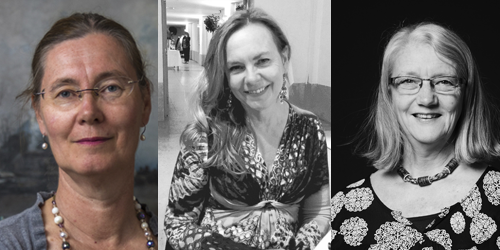Using Aesthetic Response - A Poetic Inquiry to Expand Knowing, Part II: Theoretical Perspectives on Arts-based Research
DOI:
https://doi.org/10.15845/voices.v17i1.913Palabras clave:
Arts-based research, Arts-based inquiry, Embodied felt sense, Implicit processing, Perceptual and affective building blocksResumen
Apart from being inspired from both an interpretive and a constructivist tradition, research methods based in aesthetics can thrive from a clear rationale concerning its perceptual building-blocks in both the intersubjective and intra-psychological domains. This article aims to address the complexity of sharing implicit processes and tacit knowledge in the arts-based inquiry. Layers of this inquiry is reflected along with theoretical perspectives of such undertakings. The article also offers a theoretical rationale for why to add and acknowledge important perceptual and affective building blocks in arts-based research (ABR). Through theories from expressive arts therapy, heuristic inquiry, attachment theory and contemporary affective neuroscience some thoughts on the embodied felt sense as a perceptual hub is shared. Based in contemporary attachment theory and psychotherapy research, a rationale is given for why engaging in ABR can offer clinicians and researchers a deepened understanding of the studied phenomena. Our undertakings are presented in part 1 of these two articles. From this embodied perspective, the described arts-based inquiry can be considered as a privileged way to nuance and enlarge understanding in both the intersubjective and intra-psychological domain, which could be particularly helpful to ABR researchers who are informed by a psychodynamic perspective.
Descargas
Publicado
2017-02-13
Cómo citar
Gerge, A., Wärja, M., & Nygaard Pedersen, I. (2017). Using Aesthetic Response - A Poetic Inquiry to Expand Knowing, Part II: Theoretical Perspectives on Arts-based Research. Voices: A World Forum for Music Therapy, 17(1). https://doi.org/10.15845/voices.v17i1.913
Número
Sección
Research
Licencia
Articles published prior to 2019 are subject to the following license, see: https://voices.no/index.php/voices/copyright

